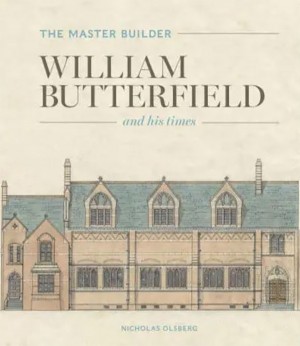By Nicholas Olsberg
William Butterfield was the most daring, rigorous and brilliant architect of his age, whose 60-year practice spanned the entire Victorian era. This book addresses the emergence of a modern society, with rapidly expanding new institutions and a changing moral code and explores how Butterfield responded to and advanced that transformation. It reflects the changing emphasis of Butterfield’s work: first, the revival, rebuilding and reform of the country parish; next the role of the church and the agents of social health in the burgeoning town and city; third, the revolution in secondary education and college life; and finally, sites of refuge, sanctuary, repose and remembrance. Drawing extensively on the literature of the time, each chapter discusses a societal shift and surveys Butterfield’s most important contributions to this. Woven through the book are characterisations of the often colourful patrons and associates of Butterfield's.
London, 2024, 28 x 24 cm, 432pp. illustrated, Hardback.
